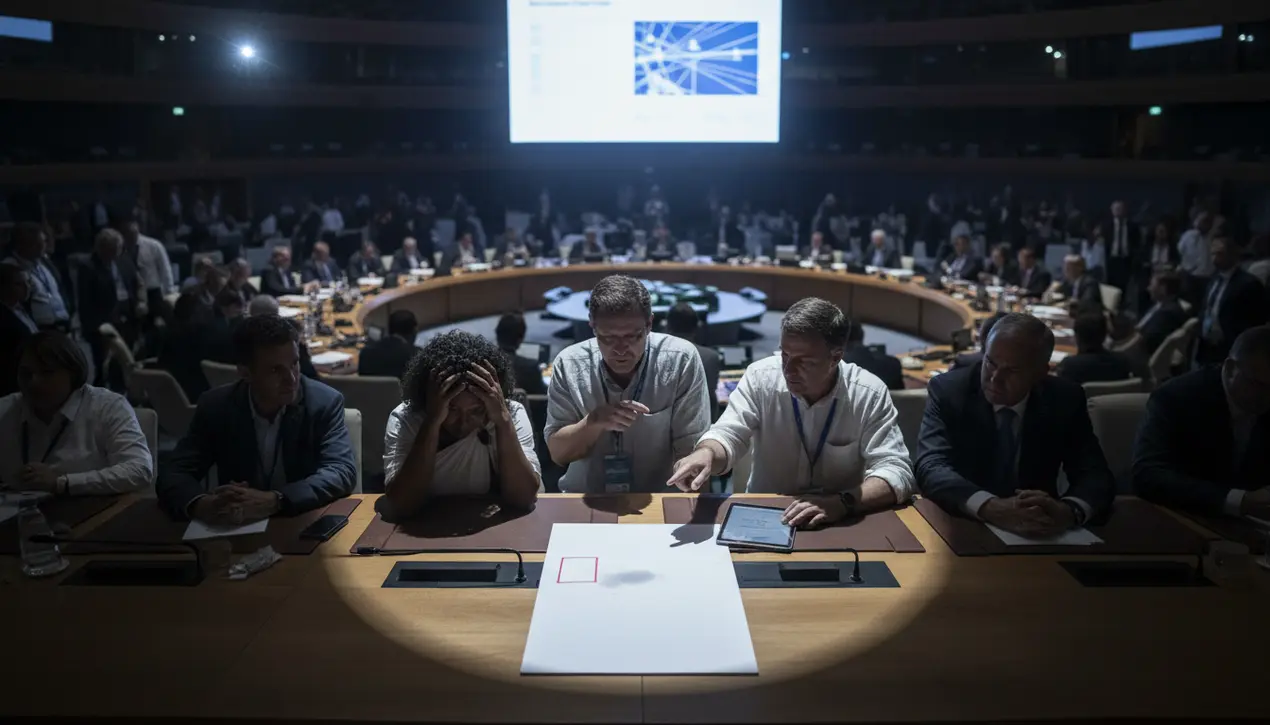
Scienceclimate scienceClimate Conferences
UN Climate Summit Draft Drops Fossil Fuel Mention
RA
Rachel Adams
1 day ago7 min read5 comments
The startling omission of any direct mention of fossil fuels from a pivotal draft text at the COP30 climate summit has sent shockwaves through the international community, igniting a firestorm of diplomatic contention that feels hauntingly familiar. This is not merely a bureaucratic squabble over semantics; it is the latest, most acute manifestation of a deep-seated and perennial conflict that has defined these global negotiations for decades, pitting the urgent scientific imperative for a rapid, managed phase-out of coal, oil, and gas against the formidable political and economic interests of petrostates and their allies.The draft’s vague language, leaning on euphemistic phrases like ‘low-emission energy’—a term notoriously co-opted to justify continued gas investment and unproven carbon capture technologies—represents a potentially catastrophic backslide from the hard-won, if imperfect, consensus of the ‘transition away from fossil fuels’ language secured at COP28 in Dubai. Veteran observers of these painstaking annual gatherings recognize this move not just as a point of principled disagreement but as a calculated and potent negotiating tactic, a classic piece of diplomatic brinksmanship designed to be deployed as a bargaining chip.By introducing a maximalist position that appeases fossil fuel exporters, negotiators create a volatile starting point, intending to later ‘concede’ to reincluding stronger language in exchange for major compromises from vulnerable nations on other critical fronts, such as the structure of loss and damage funding or the transparency of climate finance. The nations most immediately and devastatingly affected by this procedural gambit are the small island developing states, from the Maldives to Tuvalu, for whom weak language is not a political abstraction but a literal death sentence, condemning their homelands to submersion beneath rising seas.Conversely, powerful oil and gas producers like Saudi Arabia, Russia, and the United States—where domestic political pressures often stymie ambitious climate action—stand to benefit from the ambiguity, preserving their economic models for years longer. The scientific context, articulated with chilling clarity by the Intergovernmental Panel on Climate Change (IPCC), leaves no room for such obfuscation: limiting global heating to 1.5°C above pre-industrial levels, the target to which every COP nation has nominally agreed, is utterly impossible without the swift and deliberate dismantling of the fossil fuel industry. To witness this core truth being strategically erased from a key negotiating document is to watch the very foundation of the Paris Agreement being undermined in real time.The consequences of this single omission, if it survives the final plenary, are profound, sending a disastrous signal to global markets that the world’s governments are not truly committed to a clean energy transition, thereby locking in trillions of dollars of further investment in fossil infrastructure and virtually guaranteeing we will blast past critical climate tipping points. The emotional toll on climate activists and delegates from the Global South is palpable, a bitter reminder that despite the soaring rhetoric and promises of ‘increased ambition,’ the raw power politics of carbon continue to hold the planet’s future hostage. This row is therefore far more than a tactical dispute; it is the central battle for the soul of the entire multilateral climate process, a test of whether these summits can genuinely orchestrate a managed decline for the industry most responsible for the crisis or if they will remain captive to its influence, forever negotiating the terms of our collective surrender.
#climate change
#fossil fuels
#UN
#COP30
#negotiation
#diplomacy
#featured
Stay Informed. Act Smarter.
Get weekly highlights, major headlines, and expert insights — then put your knowledge to work in our live prediction markets.
Comments
Loading comments...
© 2025 Outpoll Service LTD. All rights reserved.